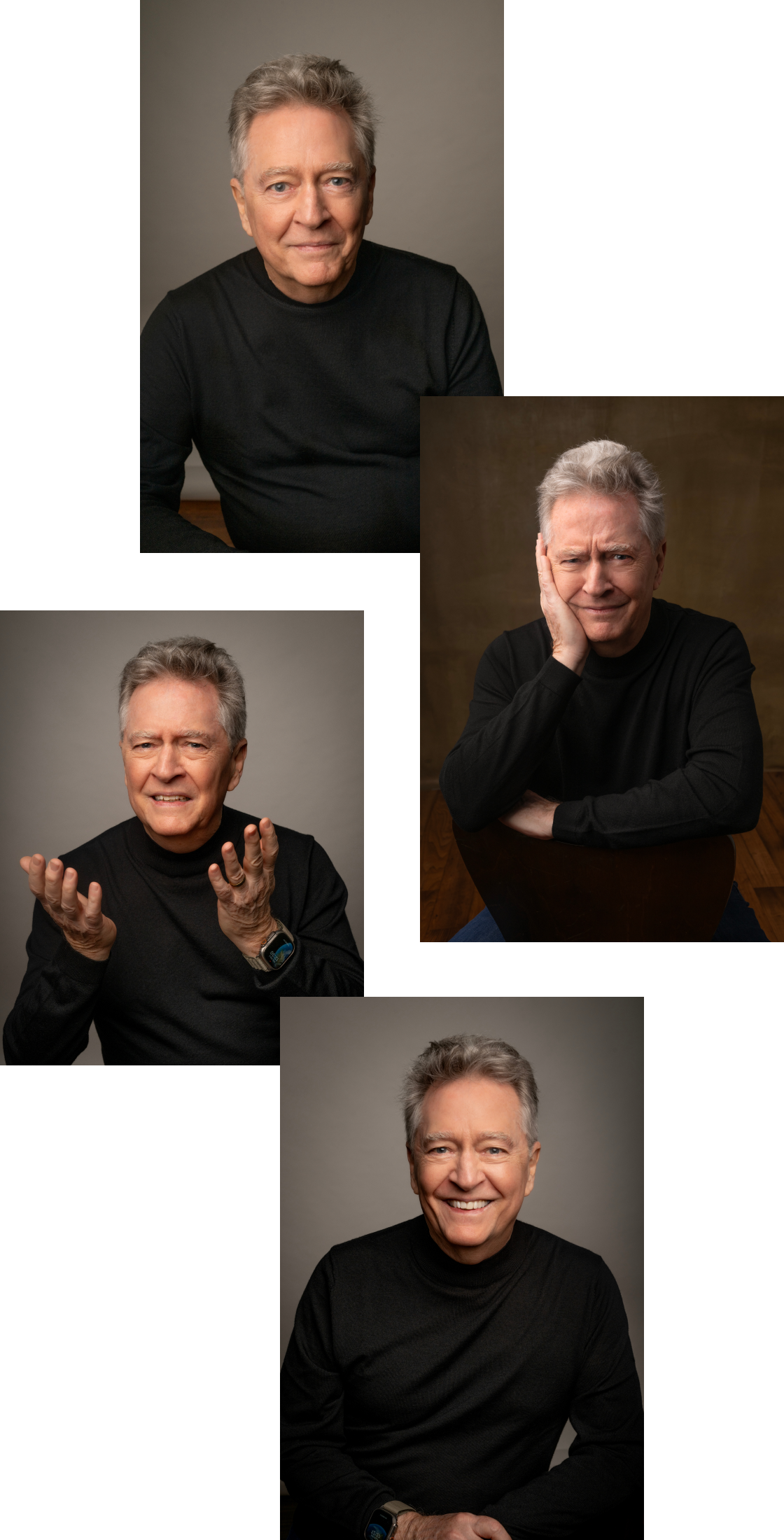Biography
Ken Cook is one of the world’s most influential and consequential advocates for the environment and protecting people from the health risks of toxic substances.
As president and co-founder of the Environmental Working Group (EWG), he has been a pioneer in using the media, data-driven science and digital communications to highlight critical information about harmful ingredients in food, water, cosmetics, drinking water, and household products.
Under Cook’s leadership, EWG’s research and advocacy have helped shape public policies at the federal and state levels, pressured corporations to reformulate their products, and empowered millions of people to keep themselves and their families safe and healthy.
Cook was raised by his mom and aunt in suburban St. Louis, Mo. He spent many of his boyhood summers on his uncles’ farms, where he worked the land and tended the cattle. In high school, he became fascinated by the debate between Paul R. Ehrlich and Barry Commoner about population growth and its effect on the environment, pursuing an independent study on their pivotal books – his first exploration of environmentalism.
Cook went on to study history at the University of Missouri, Columbia. But after a junior year abroad in England and a life-changing experience at the first United Nations Conference on the Human Environment in Stockholm in June 1972, where he met his idols Ehrlich and Commoner along with scores of other leaders in the field, he switched his major to soil science so he could explore the link between agriculture and the environment.
After college, Cook worked for an environmental think tank and as an agriculture policy analyst at the Library of Congress’s Congressional Research Service, where he began to focus on federal farm subsidy programs.
He later served as a key lobbyist and analyst for environmental and conservation groups’ first major foray into agricultural policy during the 1985 Farm Bill debate. The resulting law made landmark improvements in policy, weaving conservation into subsidy programs, and resulted in tens of billions of dollars in federal investments to protect soil conservation, wildlife, and water quality.
Cook later worked under William K. Reilly at the World Wildlife Fund as press director, policy analyst, and lobbyist.
In 1990, Cook founded a policy program within the Center for Resource Economics, where he continued working on agricultural policy, including the 1990 Farm Bill.
In 1993, he founded EWG along with Richard Wiles, who led scientific studies on sustainable agriculture, pesticides, rangeland ecology, and water issues at the National Academy of Sciences.
Cook and Wiles decided their first project would be pesticides in children’s food but rather than release a lengthy report with multiple findings designed to be read by researchers, they tailored their findings to have broad appeal with national news outlets. The report, released concurrently with a landmark study by the National Research Council (“Pesticides in the Diets of Infants and Children”) ultimately helped lead to the passage of a historic federal law (the 1996 Food Quality Protection Act) that focused federal pesticide law and regulation on the protection of infants and children.
EWG has continued to produce newsworthy reports that zero in on subjects with profound impact on the environment and people’s health and well-being, including toxic chemicals in drinking water and personal care products, mining near the Grand Canyon, and storing nuclear waste at Yucca Mountain. Using computer technology and analysis, EWG shined a light on issues that had previously been hidden in obscure government data.
With the arrival of the internet, EWG was one of the first nonprofit environmental organizations to create a website that offered searchable databases on a wide range of issues. Cook and his team noticed growing traffic to ewg.org, which by the early 2000s drew tens of millions of user sessions annually, as people discovered EWG’s research could help them avoid everyday exposure to toxic chemicals and ingredients in produce, skin care products, drinking water and more.
Today, EWG is best known to consumers for its Shopper’s Guide to Pesticides in Produce, Skin Deep, Tap Water Database, and Healthy Living app. These online resources have been consulted by hundreds of millions of consumers, journalists, scientists and policymakers. The Skin Deep database alone, featuring ratings for more than 120,000 personal care products, attracts over 1,000 visitors every hour. It has played a pivotal role in igniting the clean beauty movement — now a thriving multibillion dollar industry.
Cook describes himself as an “old school progressive” who voraciously consumes newspapers and scientific journals about the things he cares about most — the environment and the well-being of those who live in it.
“The more I read, the more I find myself thinking, ‘Someone's got to do something about that,’” he said. And usually, that someone ends up being Ken Cook.

Contact Ken Cook for speaking engagements, appearances or writing contributions:
[email protected]

Ken Cook is one of the world’s most influential and consequential advocates for the environment and protecting people from the health risks of toxic substances.
As president and co-founder of the Environmental Working Group (EWG), he has been a pioneer in using the media, data-driven science and digital communications to highlight critical information about harmful ingredients in food, water, cosmetics, drinking water, and household products.
Under Cook’s leadership, EWG’s research and advocacy have helped shape public policies at the federal and state levels, pressured corporations to reformulate their products, and empowered millions of people to keep themselves and their families safe and healthy.
Cook was raised by his mom and aunt in suburban St. Louis, Mo. He spent many of his boyhood summers on his uncles’ farms, where he worked the land and tended the cattle. In high school, he became fascinated by the debate between Paul R. Ehrlich and Barry Commoner about population growth and its effect on the environment, pursuing an independent study on their pivotal books – his first exploration of environmentalism.
Cook went on to study history at the University of Missouri, Columbia. But after a junior year abroad in England and a life-changing experience at the first United Nations Conference on the Human Environment in Stockholm in June 1972, where he met his idols Ehrlich and Commoner along with scores of other leaders in the field, he switched his major to soil science so he could explore the link between agriculture and the environment.
After college, Cook worked for an environmental think tank and as an agriculture policy analyst at the Library of Congress’s Congressional Research Service, where he began to focus on federal farm subsidy programs.
He later served as a key lobbyist and analyst for environmental and conservation groups’ first major foray into agricultural policy during the 1985 Farm Bill debate. The resulting law made landmark improvements in policy, weaving conservation into subsidy programs, and resulted in tens of billions of dollars in federal investments to protect soil conservation, wildlife, and water quality.
Cook later worked under William K. Reilly at the World Wildlife Fund as press director, policy analyst, and lobbyist.
In 1990, Cook founded a policy program within the Center for Resource Economics, where he continued working on agricultural policy, including the 1990 Farm Bill.
In 1993, he founded EWG along with Richard Wiles, who led scientific studies on sustainable agriculture, pesticides, rangeland ecology, and water issues at the National Academy of Sciences.
Cook and Wiles decided their first project would be pesticides in children’s food but rather than release a lengthy report with multiple findings designed to be read by researchers, they tailored their findings to have broad appeal with national news outlets. The report, released concurrently with a landmark study by the National Research Council (“Pesticides in the Diets of Infants and Children”) ultimately helped lead to the passage of a historic federal law (the 1996 Food Quality Protection Act) that focused federal pesticide law and regulation on the protection of infants and children.
EWG has continued to produce newsworthy reports that zero in on subjects with profound impact on the environment and people’s health and well-being, including toxic chemicals in drinking water and personal care products, mining near the Grand Canyon, and storing nuclear waste at Yucca Mountain. Using computer technology and analysis, EWG shined a light on issues that had previously been hidden in obscure government data.
With the arrival of the internet, EWG was one of the first nonprofit environmental organizations to create a website that offered searchable databases on a wide range of issues. Cook and his team noticed growing traffic to ewg.org, which by the early 2000s drew tens of millions of user sessions annually, as people discovered EWG’s research could help them avoid everyday exposure to toxic chemicals and ingredients in produce, skin care products, drinking water and more.
Today, EWG is best known to consumers for its Shopper’s Guide to Pesticides in Produce, Skin Deep, Tap Water Database, and Healthy Living app. These online resources have been consulted by hundreds of millions of consumers, journalists, scientists and policymakers. The Skin Deep database alone, featuring ratings for more than 120,000 personal care products, attracts over 1,000 visitors every hour. It has played a pivotal role in igniting the clean beauty movement — now a thriving multibillion dollar industry.
Cook describes himself as an “old school progressive” who voraciously consumes newspapers and scientific journals about the things he cares about most — the environment and the well-being of those who live in it.
“The more I read, the more I find myself thinking, ‘Someone's got to do something about that,’” he said. And usually, that someone ends up being Ken Cook.
Contact Ken Cook for speaking engagements, appearances or writing contributions:
[email protected]
Ken has been quoted and featured on countless national publications and news outlets.










